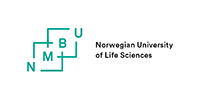The affect is the visible and audible expression of emotional reactions to both external events and internal experiences (thoughts, memories). Affect, is to be seen as superimposed on mood. The various affective modalities are to be distinguished from mood by being in the foreground and short in duration. They are the responses to external and internal stimuli, and observable as such. As a rule, any dysfunction in the expression of these emotional reactions may be observed by watching the patient’s facial expression, autonomic responses, psychomotor functions, voice and choice of words.
Modulations in the affect are known as:
- Normal Modulation.
- Blunted Affect: There is very little or no response to internal or external stimuli. A blunted affect is indicative of a depressive disorder, anxiety disorders, schizophrenia, dementia and autism.
- Labile Affect: There is very little or no control over responses to internal and external stimuli. A labile affect is indicative of mania.
- Incongruent Affect: Physician experiences no relationship between expression of emotions and the affective life of the patient.
- Forced, Exaggerated Or Theatrical Affect: Affects can be exaggerated or even theatrical in nature whereby feelings are expressed in an increasingly exaggerated manner.




























